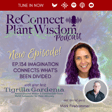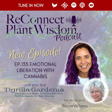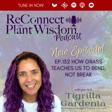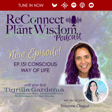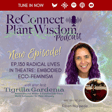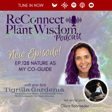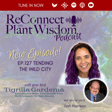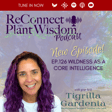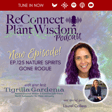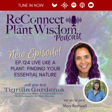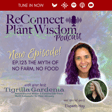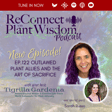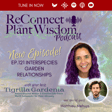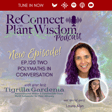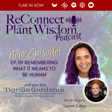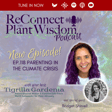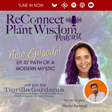
Ep.89 Flora Funga with KK
In this episode, I sit down with the energetic KK, a passionate plant biologist with a love for fungi. We dive deep into the world of fungi, discussing everything from the soil food web to how to grow different types of fungi.
Kk has a fantastic journey, blending her passion for plants and fungi, and how she educates others about the world of mycology. We explore the profound relationships between plants and fungi, touching on communication above and below the soil.
KK also talks about her work at Zephyr Gills Mushroom Farm and her efforts in outreach and education. Plus, we discuss the importance of connecting with nature and how understanding plant and fungi interactions can enrich our lives. This conversation is packed with insights, stories, and a shared enthusiasm for all things green and fungal.
Topics Covered about Fungi Relationships
➡️ KK's journey from plant biologist to passionate mycologist and educator.
➡️ Detailed discussion on the soil food web and the crucial role of fungi.
➡️ Insights into the relationships between plants and fungi, including their communication.
➡️ Kk's work at Zephyr Gills Mushroom Farm and her outreach efforts.
Resources Mentioned
- Flora Funga Podcast
- ZephyrGills Mushroom Farm LLC
- Read more in the Plant Wisdom Book Club
- Mentorship with me and Plants
🌟Connect with nature-conscious creatives, multipotentialites, and naturentrepreneursin the premier online ecosystem that nourishes plant reawakening and community support for accelerated evolution and co-creation with otherkin. >> JOIN OUR COMMUNITY <<
☝🏽ReConnect with Plant Wisdom podcast Ancient and modern knowledge from biology to spirituality about the wondrous ways plants help you lead a Naturally Conscious life. Subscribe on your favorite podcast player.
// Let's work together: book a Discovery Call
// EcoConscious Business Partners: Create Music with Plants Shop Here
// Opening and Closing music by Steve Sciulli and Poinsettia from The Singing Life of Plants
// Socialize with me Facebook | Instagram | LinkedIn | Youtube

